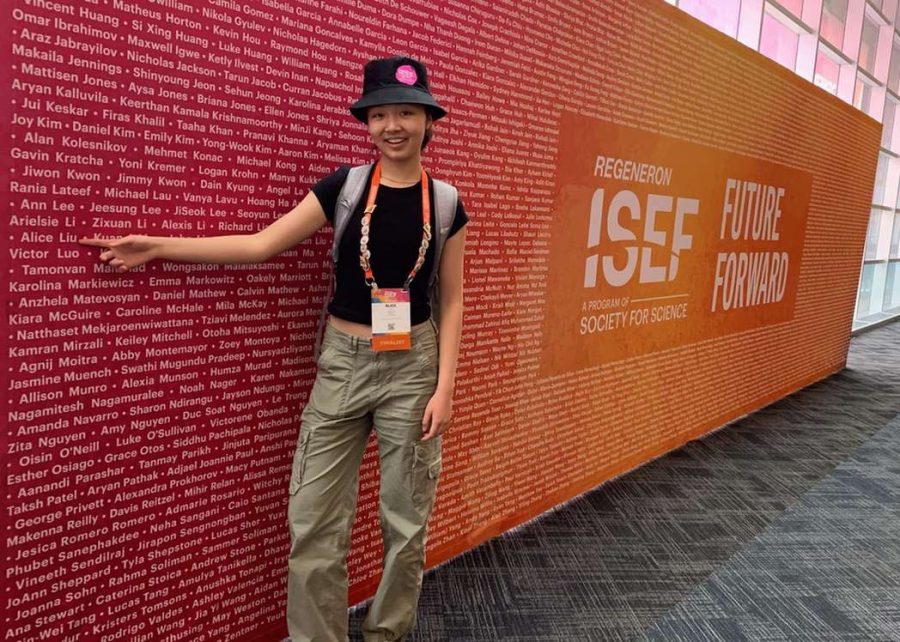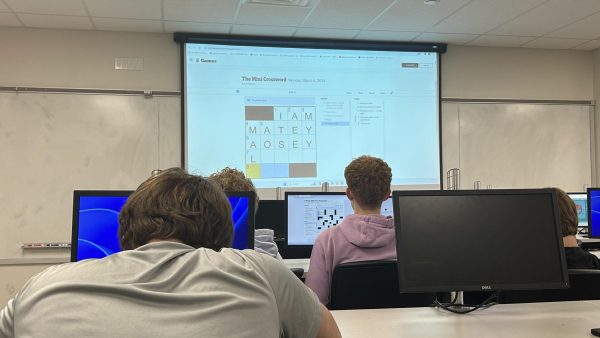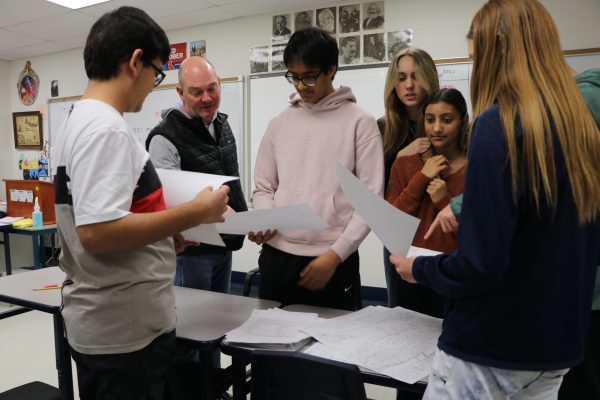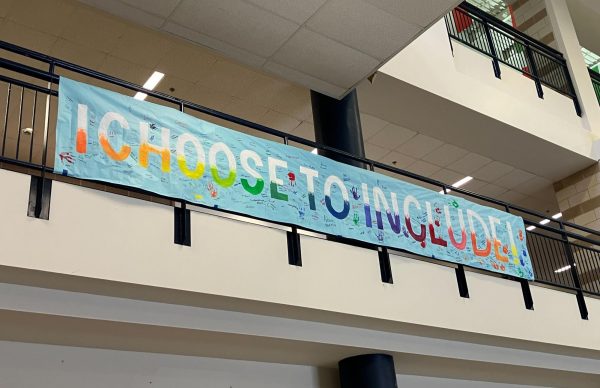Junior Places Fourth in Prestigious STEM Competition
Media by Ping Wang
Alice Liu, junior, placed fourth last week at the largest pre-college STEM competition in the world, the International Science and Engineering Fair (ISEF). She specifically presented about pharmaceutical pollutants such as acetaminophen.
Alice Liu, junior, placed fourth last week in at the largest pre-college STEM competition in the world, the International Science and Engineering Fair (ISEF).
“People submit their projects to a regional or state fair, and if they advance, they all meet up at the giant convention in Dallas, where they present their projects to a panel of judges,” Liu said.
Liu’s project was titled “Modified Nanoporous Gold Sensor for the Electrochemical Detection of Acetaminophen”.
It was a lot of fun and really cool meeting people from all around the world.
— Alice Liu
“My topic was about a method to detect pharmaceutical pollutants, specifically acetaminophen, which is an ingredient in Tylenol,” Liu said. “So I used a chemical and monitored the current change to find out whether or not the pollutant was present.”
Liu’s project and presentation earned her the Fourth Award in the chemistry division. There were more than 80 finalists in this category at ISEF.
She also received a third-place special award from the American Chemical Society (ACS).
Not only was this ISEF a competition, but it was also a place to learn about others’ STEM journeys.
“I wish I could have gone to more of the seminars they had where there was a panel of different people talking about their STEM journey,” Liu said. “It was a lot of fun and really cool meeting people from all around the world.”
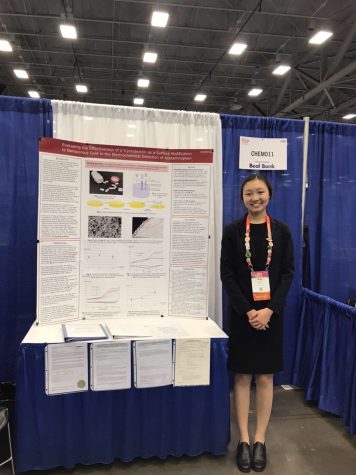
Dr. Cathy Farrar, science teacher, is where Liu learned of ISEF.
Participants first have to compete locally and take either first or second place. Liu placed second in the St.Louis Science Fair, which qualified her for ISEF.
The presentation that competitors have to give is based heavily on self-research.
“You have to be the one to come up with the question, to do all the work, to do all the analysis and then you compete at the local level and then you get a spot at ISEF,” Dr. Farrar said. “Then from all the people that get sent they have a selection process. There’s all kinds of reasons you can get disqualified from competing. You get past that hurdle, then you get to go to ISEF.”
Dr. Farrar stresses the importance of Liu’s project because when acetaminophen levels are high, it may increase the risk of liver damage.
If all scientists were Alice, the world is in good hands with that because she’s awesome.
— Dr. Cathy Farrar
“Acetaminophen is really difficult to detect. So a more fast, efficient and cheaper version of detection that is more accurate is really important,” Dr. Farrar said.
She also shares her excitement for Liu’s accomplishments.
“It is like the biggest competition for science research at the high school level in the entire world,” Dr. Farrar said. “If all scientists were Alice, the world is in good hands with that because she’s awesome.”
Your donation will support the student journalists of Marquette High School. Your contribution will allow us to purchase equipment and cover our annual website hosting costs. You may become a PATRON by making a donation at one of these levels: White/$30, Green/$50, Blue/$100. Patron names will be published in the print newsmagazine, on the website and once per quarter on our social media accounts.
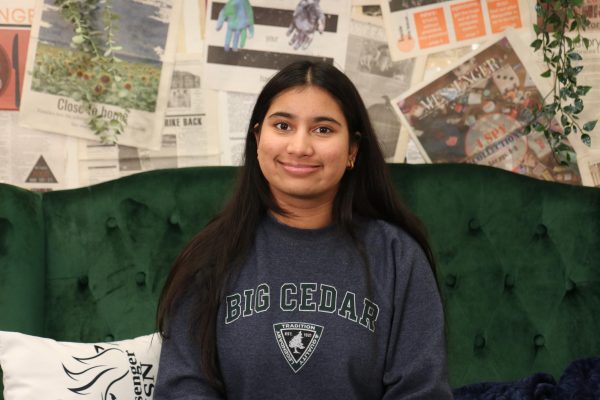
Prashu Sidella, senior, is the Online Editor for the Marquette Messenger. This will be her third year on staff. She is the president of Key Club, plays...
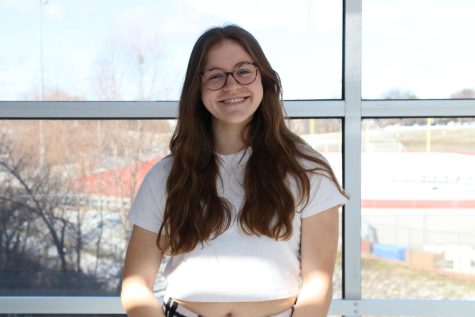
Brooke Eck, junior, is the Page Designer for the Marquette Messenger. This will be her first semester on staff. Brooke also does Allstar Cheerleading outside...



